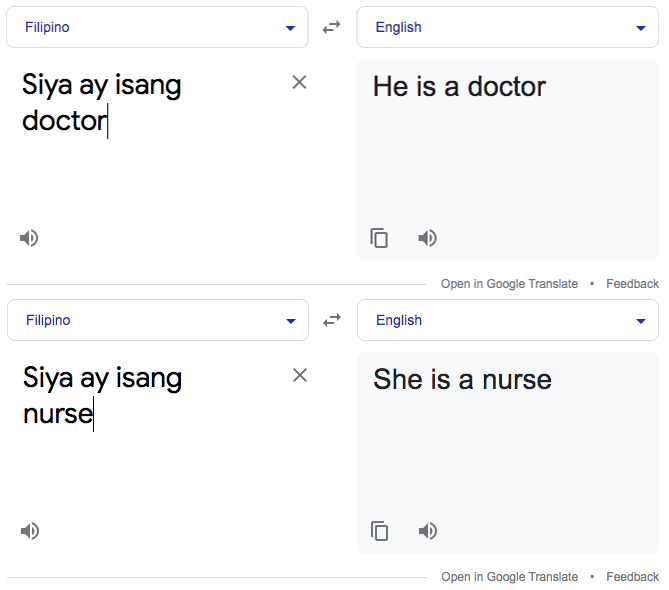
Google Translate struggles with the Filipino personal pronoun “siya,” and it resorts to prejudices in converting it into English.
Midjourney, an AI-based art generator, depicts doctors as male and nurses as female. A tweet revealed that when prompted to write a python function determining a good scientist based on race and gender, ChatGPT (Generative Pre-Trained Transformer), a large language model-powered chatbot, turns racist.
AI has dozens of other ethical issues beyond whether or not students must be allowed to use it or whether its usage amounts to copyright infringement. But these issues must not stop us from using it.
To work effectively, AI tools are trained on large datasets. It is AI’s complicated machine learning that makes its responses human-like. But no matter how large training datasets are, their representations may be limited and can be a reflection of humanity’s own biases.
A facial recognition technology in Australia, for example, is trained on datasets that mainly include white people, thereby making it challenging to recognize people of color.
Doctors in existing datasets are male, so it is not surprising that natural language processing tools label them as such.
Although it operates like magic, AI is still human-made, and it cannot easily escape the biases of its creators. In fact, AI can be used to magnify these biases. It is nothing but a child whose worldview is limited by what is constantly shown to it.
As AI evolves, efforts to resolve its inadvertent bias are also being made. These range from using more representative training datasets to improving human and machine interaction and feedback through a “human-in-the-loop” mechanism.
Another important way to confront this bias problem is to make individuals understand that contrary to the popular belief that AI is an impartial tool, it can also be an extension of human’s poor judgments.
That AI has these limitations is relevant to the ongoing discourse on AI’s impact on academic honesty. Instead of prohibiting students from using AI for their college essays, teachers may consider these limitations to rethink their teaching models and assessments. Learners may be asked to write essays involving their personal judgment or those related to their specific contexts – topics that may escape the datasets most AI tools are trained on. Learners may be asked to grade or criticize a ChatGPT-produced write-up, an exercise of their evaluation skills. Learners may be taught about AI – the way it works and its ethical issues (including its environmental side effects) – to make them more reflective about its usage. If schooling is indeed a preparation for the “real world”, it must be recognized that AI is constantly being used in the real world, and it is not helpful to take from students the opportunity to use AI to enhance their learning.
AI challenges our traditional teaching-learning environment. For a long time, learners have been asked to produce many outputs they do not necessarily relate with, which must follow stringent guidelines and be graded “objectively” based on stringent criteria. For a long time, learners have been trained to become robots, so it is not surprising that they resort to actual machines to do tasks that machines are capable of doing. AI invites educators to ask why we assess students in the first place and what types of assessments are so intriguing, so purposeful that students would be motivated and compelled to accomplish them without the help of some external tools.
Many years ago, educators had a pessimistic view of the use of computers and the internet because they worry that they may be detrimental to learning. However, educators and students have been benefiting from internet usage today. While it is admittedly not without disadvantages, it is surely absurd to propose its ban in classrooms. The same can be said for AI. It already exists. It is a complex system whose workings experts have yet to figure out entirely. This “black box” may be alarming, but it also suggests that AI has potential we are yet to explore.
Reil Benedict Obinque has a masters degree in Basic Education Mathematics. He teaches math to senior high school students. Some of his fiction pieces have been featured in UP Likhaan, Philippines Graphic, and ANMLY Press, among others.
AI, ChatGPT, philippines









